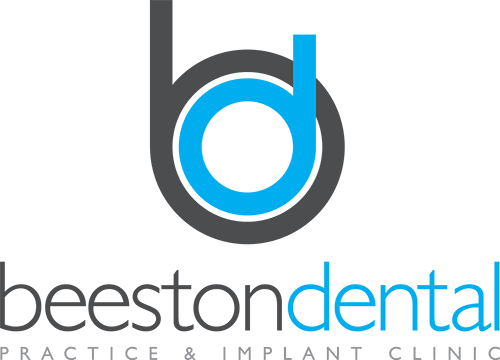
30th October 2025
Why Preventative Dentistry Saves You Time and Money
Preventing a dental problem is always easier and far less expensive than fixing one. That’s the foundation of preventive dentistry, an approach focused on maintaining your oral health through regular care, early detection, and good hygiene habits.
At Beeston Dental Practice, patients are encouraged to see their smile as an investment. Preventive dentistry helps protect that investment by reducing the risk of costly and time-consuming treatments later in life.
If you’ve ever wondered how routine dental visits and everyday care can help you save both time and money, this guide explains everything you need to know.
1. What Is Preventive Dentistry?
Preventive dentistry involves every action taken to maintain healthy teeth and gums before problems develop. It’s about spotting early signs of decay, gum disease, or wear and taking steps to stop them from worsening.
This includes:
-
Routine dental check-ups and professional cleanings
-
Fluoride treatments and dental sealants (where suitable)
-
Patient education on brushing, flossing, and diet
-
Regular screenings for oral cancer or gum disease
By keeping small issues from becoming big ones, preventive care ensures your smile stays healthy and treatment costs remain manageable.
2. The True Cost of Skipping Dental Check-Ups
Many people delay dental appointments because their teeth “feel fine.” However, oral problems often develop silently. Tooth decay, for example, may not cause pain until it’s advanced, by which point it could require a filling, root canal, or even extraction.
Regular check-ups allow your dentist to:
-
Detect decay or gum issues early
-
Prevent extensive and costly treatment
-
Save you the inconvenience of emergency visits
In short, investing in routine care now helps avoid the much higher financial and emotional cost of complex dental procedures later.
3. How Preventive Dentistry Protects Your Smile (and Your Wallet)
Good preventive care can significantly reduce the likelihood of common dental issues. For example:
-
Tooth decay: Early detection and professional cleaning can stop cavities from progressing, avoiding fillings or crowns.
-
Gum disease: Routine hygiene appointments help prevent inflammation that could lead to tooth loss, a problem often requiring implants or dentures.
-
Tooth wear: Identifying grinding habits early allows for protective solutions, such as custom night guards, before serious damage occurs.
Each small preventive step helps safeguard your long-term dental health and keeps treatment costs down.
4. The Role of At-Home Oral Care
Preventive dentistry doesn’t end when you leave the practice. Daily habits are the cornerstone of oral health.
Your dentist may recommend:
-
Brushing twice daily with fluoride toothpaste
-
Flossing once a day to remove plaque between teeth
-
Using mouthwash to reduce bacteria and freshen breath
-
Limiting sugary foods and drinks to lower cavity risk
Consistent care at home, combined with regular professional visits, forms the strongest defence against dental problems.
5. Preventive Dentistry for Children and Families
Preventive care should start early. For children, this means developing healthy brushing habits, attending regular check-ups, and possibly applying protective sealants to prevent decay.
Establishing a positive relationship with the dentist helps young patients feel comfortable and confident about the oral care setting them up for a lifetime of healthy smiles.
For families, preventive appointments make it easier to manage everyone’s dental health proactively, reducing the risk of unexpected problems and saving both time and money across generations.
6. How Preventive Dentistry Supports General Health
The mouth is closely linked to the rest of the body. Gum disease has been associated with systemic conditions such as diabetes, heart disease, and stroke.
By keeping your gums healthy through preventive dental care, you may also be supporting your overall well-being. Regular dental check-ups can sometimes detect signs of broader health concerns, allowing for early medical intervention if needed.
7. The Long-Term Benefits of Preventive Dentistry
Preventive dentistry offers both immediate and long-term advantages:
Lower dental costs: Regular check-ups are far less expensive than restorative treatments.
Less time in the chair: Preventive care means shorter, more comfortable appointments.
Healthier gums and fresher breath: Regular cleaning reduces bacteria and inflammation.
Greater confidence: A healthy mouth means a smile you can proudly share.
Fewer dental emergencies: Prevention significantly reduces the risk of unexpected pain or damage.
The small effort you invest today can save years of future dental work and countless pounds in treatment costs.
8. Why Preventive Dentistry Matters for Adults
Even if your teeth look and feel fine, preventive appointments remain essential. Age, diet, stress, and lifestyle factors can all increase your risk of oral health problems.
Adults who keep up with preventive care often find they:
-
Require fewer fillings and repairs
-
Experience less gum recession or tooth loss
-
Maintain better oral comfort and confidence
In other words, preventive dentistry helps ensure your natural teeth last a lifetime.
Frequently Asked Questions
1. What is preventive dentistry?
It’s a proactive approach to maintaining oral health through regular check-ups, cleanings, and good daily habits.
2. How often should I see my dentist for preventive care?
Most people benefit from a check-up every six months, but your dentist may recommend a personalised schedule.
3. Is preventive dentistry really cheaper than treatment?
Yes — preventing decay or gum disease is far less costly than fillings, crowns, or extractions.
4. Does dental hygiene treatment hurt?
No — hygiene visits are gentle and focused on keeping your mouth clean and comfortable.
5. Can preventive care help avoid tooth loss?
Absolutely. Regular cleaning and monitoring help prevent gum disease, the leading cause of adult tooth loss.
6. What’s the difference between preventive and restorative dentistry?
Preventive dentistry aims to stop problems before they occur, while restorative dentistry repairs damage that’s already happened.
7. Can preventive dentistry detect other health issues?
Yes — dentists can sometimes spot signs of conditions like diabetes or vitamin deficiencies during an oral exam.
8. How can I practice preventive care at home?
Brush twice daily, floss daily, use fluoride toothpaste, and limit sugary snacks.
9. Is preventive dentistry suitable for children?
Yes — early prevention helps protect developing teeth and encourages lifelong healthy habits.
10. What happens if I avoid the dentist for a few years?
Small, unnoticed issues may progress into serious dental or gum problems that require extensive treatment.
Save Time, Stress, and Money with Preventive Dentistry
Preventive care is the simplest and most effective way to keep your smile healthy and your dental bills low. By visiting your dentist regularly and maintaining strong daily habits, you can protect your teeth, avoid discomfort, and enjoy lasting confidence in your smile.
If you’re ready to make preventive dentistry part of your oral health routine, book your next appointment with Beeston Dental Practice in Nottingham today and take the smart step towards a healthier, worry-free smile.
